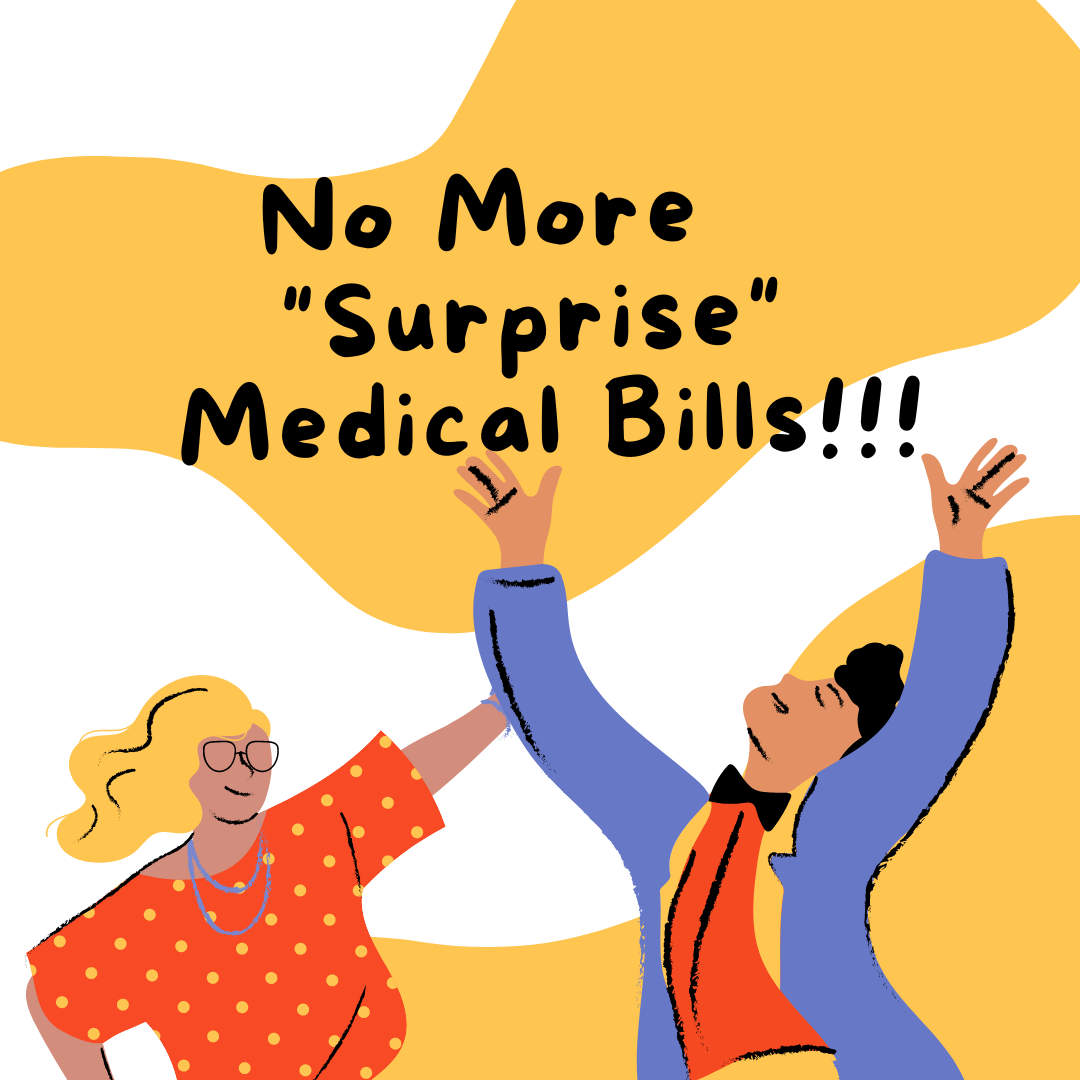Overview
According to a report on CNBC, “Two-thirds of people who file for bankruptcy cite medical issues as a key contributor to their financial downfall.” In the past, a key contributor to the problem of excessive medical bills was balance billing. This is also known as “Surprise Billing”.
So, what is this phenomenon called “surprise billing”? Well, to understand the situation better, let me offer a high-level overview of how health plans offer care. I’ll cover three essential and common types of medical care. Routine care, urgent care, and emergency care.
With routine care, you usually will visit your primary care physician and your costs will be detailed in your health plan documentation. If you need health care outside of the hours of your primary care physician practice, many plans will allow you access to an urgent care facility. And once again, your costs will usually be easily looked up in your plan documentation. However, when you have a medical emergency that could involve loss of life, you may need access to the nearest capable hospital. This is where problems could occur with your health plan and its requirements.
Health plans
So, let’s talk about health plans. Insurance companies have contracts with providers. A provider is a doctor, medical group, hospital, laboratory, or pharmacy. Insurance companies negotiate prices with providers for their members. This is how they control costs and offer acceptable premiums for their plans. So, when you need to use the services of a provider, your health plan wants you to use a provider that has negotiated contracts. And that makes sense. These providers, with negotiated rates, are called “In-network” providers. When you get covered services from in-network providers, you are responsible for a share of the cost. Your share of the cost for covered services is published in the coverage documents of your health plan. However, If you get covered services from a provider out-of-network, you could be fully responsible for the payment of the services.
Thus, the inadvertent use of an out-of-network provider could have significant financial consequences. And in many instances, the use of out-of-network providers may be beyond your choice and control. For instance, if you’re in severe physical distress, you may need to be taken to the hospital in an ambulance (a provider). Once you arrive at an emergency room (a provider), the doctors (a provider) may order x-rays, scans, and labs (a provider). So, with every provider used during the incident, there’s a chance you could be treated by an out-of-network provider.
The Change
Beginning this year, 2022, the government passed the “No Surprises Act”. The act provides consumer protection from surprise bills. Now patients are only liable for their in-network cost-sharing amount when they need emergency services. There are also requirements for providers and health plans to give patients access to their health care costs. And finally, there is a dispute resolution process.
These requirements apply to employer group health plans, Marketplace plans, and direct individual plans. This law does not apply to people covered by Medicare and Medicaid. They already enjoy similar protections.
